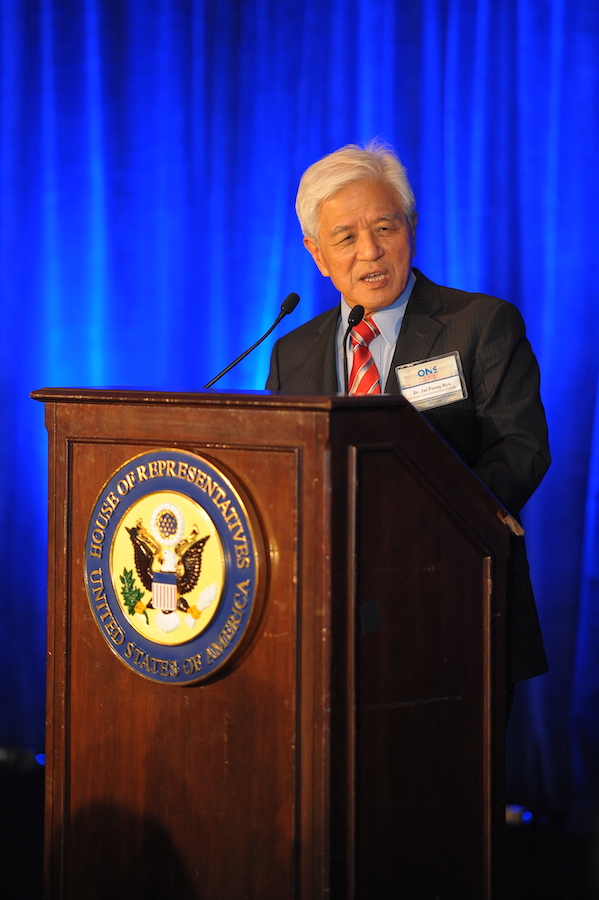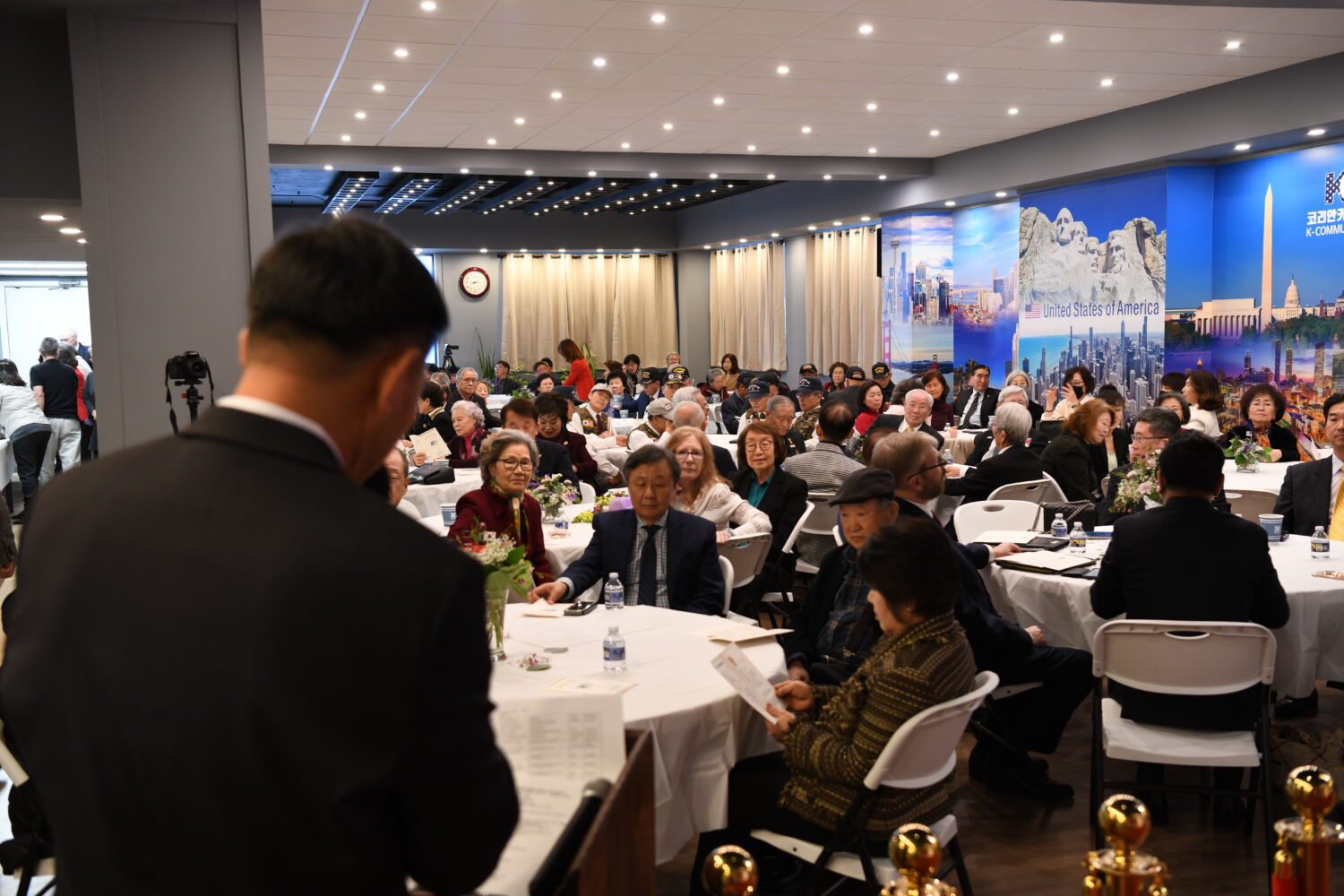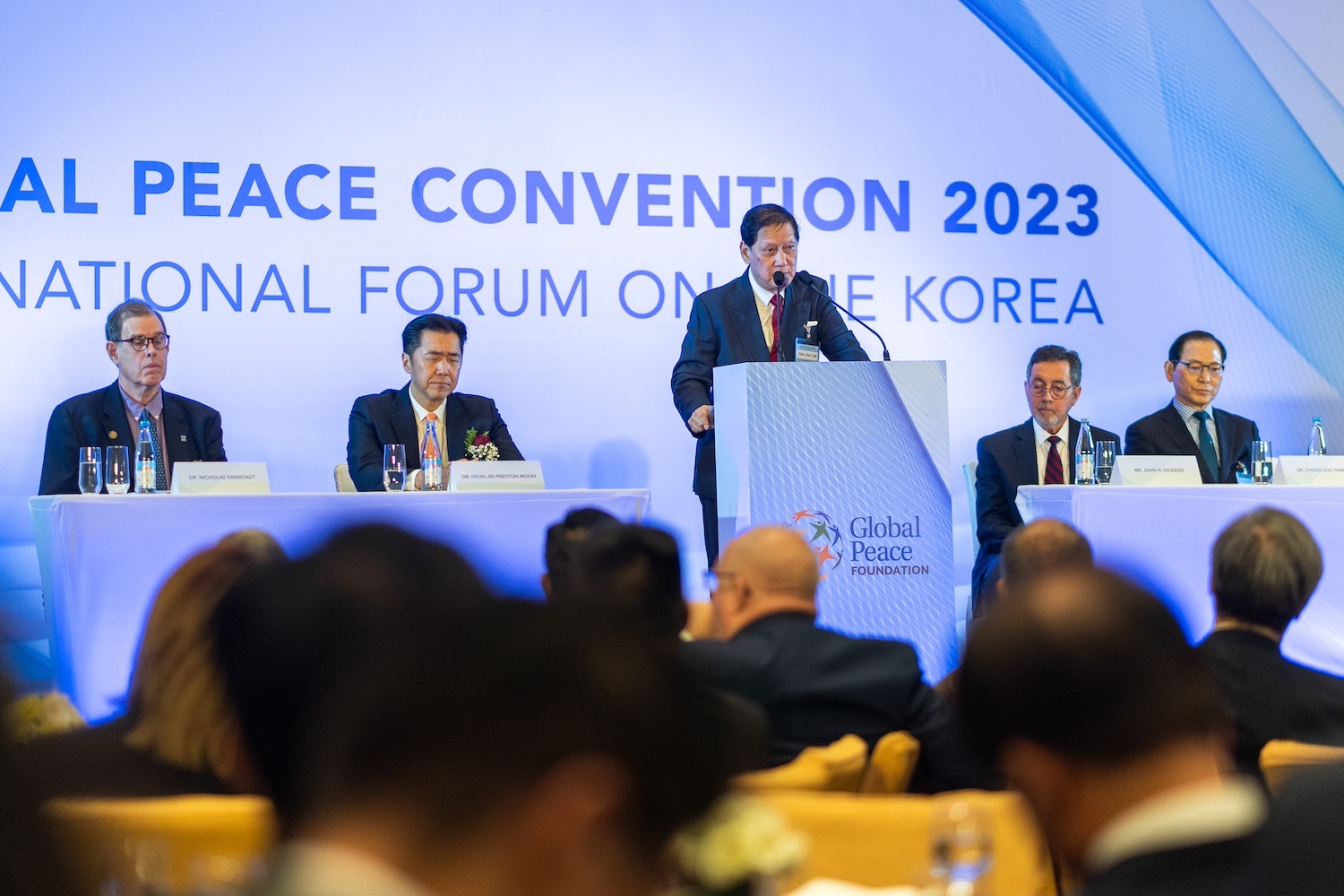Dr. Ryu and the One Korea Foundation is part of the upcoming Global Peace Convention in Korea leading up to the commemoration of the March 1, 1919 Korean Independence Movement, to build momentum toward the peaceful unification of the Korean peninsula.
Jai Poong Ryu was six when he left North Korea with his mother and sister to rejoin their family in the South. It was only a few years before the outbreak of the Korean War. At the time, he did not know then how their trip would change his life.
Today, Dr. Ryu knows how narrowly he missed a different life. He eventually immigrated to the United States, earned his PhD in sociology, taught and conducted research in macro-sociological interpretation of history, conflict resolution, demography, and social institutions.
Dr. Ryu is passionate about securing human rights for all Koreans and unifying the Korean peninsula. He is the founder and president of the One Korea Foundation.
In a recent interview with the Global Peace Foundation, Dr. Ryu shared his sincere dream for his Korean homeland, drawing inspiration from pivotal moments in both Korean and American history. He shared insights about the 1919 Korean Independence movement that began with mass peaceful demonstrations across Korea on March 1, 1919.
Dr. Ryu highlighted the remarkable contributions of Korean-Americans to the Korean Independence Movement and their articulation of democratic principles for a new nation of Korea, and his belief that Korean-Americans would again play a critical role in shaping the destiny of Korea in this century. He talked about Abraham Lincoln’s moral leadership during the Civil War and how his principles are applicable to the reunification of the Korean peninsula.
You have been a major force in the Korean-American community. Tell us about your work for Korea.
First, I may have been a small voice but not a major force. Also, my little voice has been directed toward the American public than Korean-Americans.
The Republic of Korea (ROK) – US alliance is very important, but the American public know little about Korea. Decisions America makes affect the life, death,and future of Korea, and people who make decisions about Korea are not really that interested in learning about Korea. So, my attention has been to approach what I call AOL, American Opinion Leaders, and to try to convey that the Korean people, unlike their superficial impression, do like to be united.
There’s a very strong and profound aspiration for Korean unification, ONE KOREA, in just about every Korean’s heart and soul, I think. But it does not mean that they are really thinking about it nor are they talking about it. So, there is a sort of a gulf. People want it, and people have a very strong desire for the kind of Korea they want to see after unification. Yet there’s very little dialogue going on about that. So, my actions are to ignite that by asking, “Why don’t you talk about that? Why don’t we do something about it?”

Dr. Jai Ryu at an Action for Korea United forum
What is your hope for Korea?
My dream is the rise of ONE united KOREA—strong, independent, prosperous and respectful of human rights and rule of law and free economy as well.
This dream is achievable.
About four hundred years ago, Korea was dealt crippling blows: two successive invasions by Hideyoshi Japan and the Ching China in 1592 and 1636, respectively. Full recovery from these catastrophes proved impossible. Korea had been placed on a downward spiral of decline ever since.
Now, for the first time in half a millennium, Korea has a future. It has a combined population nearly 80 million people. Koreans demonstrated their capability by having accomplished the industrialization and democratization from the ashes of the devastating three-year Korean War.
Koreans have the capability now more than ever before to achieve the dream of one, unified, independent Korea. By upholding human rights and freedoms and establishing a free market economy, Korea has great potential to become a strong and prosperous nation.
That is what the drafters of the declaration of independence of 1919 had in mind. The March 1st Movement was calling out for something close to Hongik Ingan (meaning to broadly benefit humanity). My dream for one Korea is that it will be a country that will inherit, apply, and realize the Hongik Ingan principle.
I also believe that Hongik Ingan informs principles like those enunciated in the Declaration of Independence at the start of the United States of America. Taking the American constitution as a model, I think that Korean leaders should sit around like the founding fathers of America and craft the new constitution, with a keen eye on the ways Korean people can govern themselves in the long run.
Could you speak on the major lessons from Lincoln’s leadership that are relevant to Korean unification?
There are some places that make me feel the sacred. One such place I went to was Baektu Mountain. I visited last year, and the mountain inspired me. Closer to my home, the Lincoln Memorial is also such a place.
At the Memorial, we read the Gettysburg Address on one side and his second inauguration on the other side of the sitting statue of Lincoln. The messages that both speeches combined convey the following: government of the people, by the people, for the people shall not perish. Such governments will endure because it relies on human goodness and liberty. His second message is, I think, that such great causes like the preservation of the Union and ending of slavery needs sacrifice. It needs the support of the people. People would be willing to die for it. He calls for sacrifice for the cause.
In his second inauguration, it states “malice toward none with charity for all.” Nelson Mandela in South Africa said the same thing. A united Korea will have lots of problems as reunited America did during and after the Civil War. How could nearly 80 million people divided into two who have lived in two drastically different settings for 70 plus years live in peace together? It’s a big question. I think Lincoln’s third message of “malice toward none with charity for all” should be a guiding principle between the people of North Korea and South Korea after unification.
You are from North Korea. Tell us about your connection to North Korea.
Whenever I hear how people eat, obey, and die in North Korea, I often imagine myself in their shoes. This very personal empathy with the people of North Korea has been growing.
I want the North Korean people to be free even more than I want to see a united Korea. Freedom is more important than unification. People of my generation, Korean people who were born in the 30s and 40s through 50s, they all have some stories like this to tell. I’m not unique. Everyone has some experience about how they separated from their family, how they reunited, and how they spent two or three months without any food or shelter. These are universal stories. The Korean War was no joke. It was a challenging time for everyone. Over three million people died.
What is the role of the Korean-American community and the future of Korea?
Koreans in America are becoming more politically involved in America. They are running for City Councils and county executive positions, and though they mostly fail, they run for Congress. I think there will soon be more and more discussion about whether Korean-Americans have some kind of structure that would make it possible for Korean-Americans to have some kind of united voice.
This I know, if Korea is somehow fated to go the wrong way where Korea is in a dire situation, I think the real last bulwark, the real strength of what will bring Korea back to normal and to its true nature – I think Korean-Americans must play that role. I think Korean-Americans could be the last living hope of Korea.
During Japanese colonialism, great leaders arose in America such as Ahn Chang-ho, Philip Jaisohn in Philadelphia, and Syngman Rhee. I visited Voice of America about two months ago. Voice of America was founded in 1942 after the start of WWII. They developed different language programs for countries where people do not live free. But nobody thought about including the Korean language. Most people did not know where Korea was on the map of the world. Syngman Rhee lobbied the US Congress and lobbied the people who were going to run Voice of America to include the Korean language. The Korean language was one of the very first languages the Voice of America was broadcast on.
If Korea falls into a dire state like that again, I think the Korean-American community will mobilize once again. The pillar of Korea’s Independence and unification and future is really Koreans abroad.




